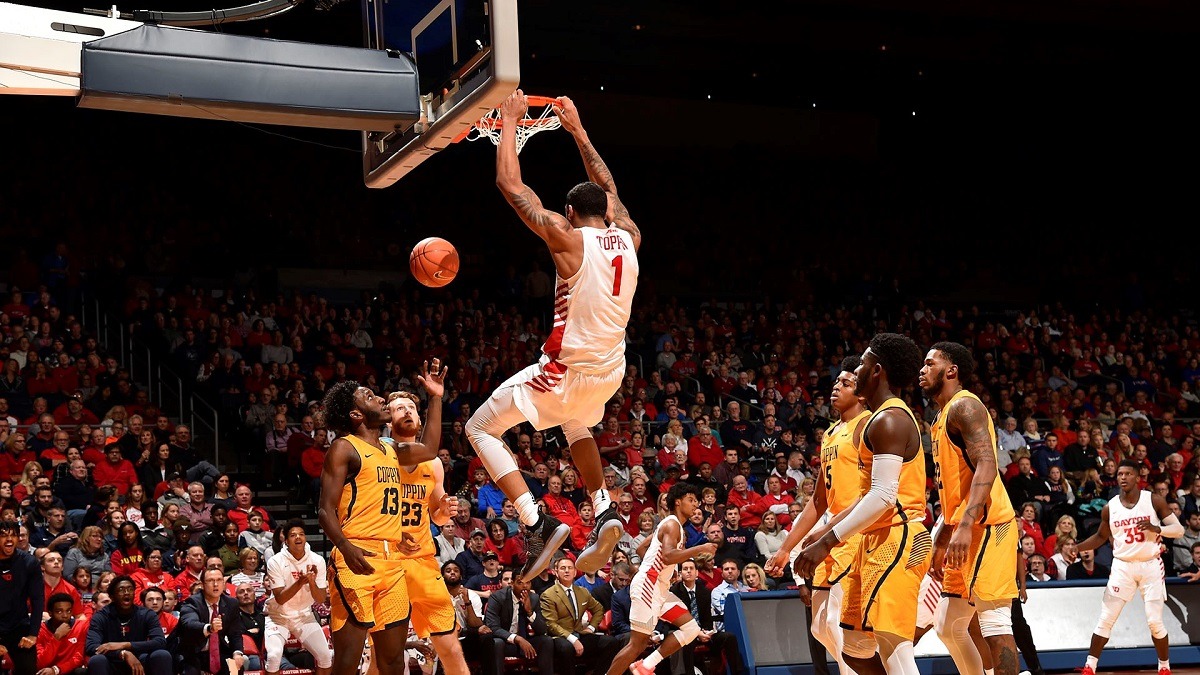Guys, I am devastated. I let you all down last year. It was right under my nose that UConn would win the championship, but I missed it due to poor data collection. I began last year's prediction by saying a team with eight losses would win March Madness, and in listing all the teams that qualified, I somehow missed...
Predicting the 2020 NCAA Basketball Tournament National Champions
We were all looking forward to March Madness, but the NCAA was forced to cancel due to the Coronavirus and rightfully so. However, I promised you a prediction on who would win March Madness, and I will fulfill that promise. I was spot on in predicting Virginia would win last season and fully believe I would have been spot on with this year's prediction. My theory is if I was correct last year, and I am a year older and therefore a year smarter, then I can only be more correct this year, right?
After hours of difficult, time-consuming, and strenuous research into things that have absolutely nothing to do with any of the basketball we have seen this season, we have arrived at our predicted 2020 NCAA Tournament Champions.
The Dayton Flyers are your predicted 2020 March Madness Champions.

We could bore you with analysis of Obi Toppin's dunk-fueled dominance, the team's record breaking offensive output, or the fact that their only two losses came in overtime. But Nah, that would make too much sense, our prediction has nothing to do with basketball.
After analyzing the numbers, it became clear that the Dayton Flyers are the favorites for the NCAA Tournament for these three reasons that have absolutely nothing to do with basketball.
1. Rules of 4
Last season when predicting Virginia would win, we told you it came down to a one seed because since 1997, anytime a one-seeded team won at least two tournaments in a row, they won 4 in a row. #1 seeded North Carolina in 2017, Villanova in 2018, and Virginia in 2019. Three #1 seeds in a row, meaning this season's NCAA tournament, would have been won by a #1 seeded team.
Now, the NCAA never released an official bracket for 2020, but the consensus brackets released by multiple bracketologists had: Kansas in the Midwest, Dayton in the East, Baylor in the South, and Gonzaga in the West, as the four number 1 seeds of the NCAA Tournament.
2. Advanced Algebra

In the streak of four #1 seeded champions from 2007-2010, going into the tournament, the teams were nationally ranked #1 Florida in 2007, #4 Kansas in 2008, #2 North Carolina in 2009, and #3 Duke in 2010. 1+4+2+3 = 10 . . . Again in the streak of four #1 seeded champions from 1999 to 2002, the teams were nationally ranked #3 UConn in 1999, #2 Michigan State in 2000, #1 Duke in 2001, #4 Maryland in 2002. 3+2+1+4 = 10.
That means in the two streaks that saw four #1 seeded teams win the championship, when added together, the champions had a national ranking that equaled 10. In 2017, one-seeded North Carolina was ranked #3, 2018 Villanova was ranked #2, 2019 Virginia was ranked #2. 3+2+2+X = 10. Fortunately, we finally get to apply some of the algebra we learned in high school, which means solving for X brings us at 3. Meaning the #3 team in the country going into the tournament will win the National Championship. Dayton Basketball was ranked third in the pre-March Madness ranking released by the AP.
3. Everything Equals Out
The third reason is dependent on the last. Trends tend to equal out, so if Dayton were to win, that would make it two #3 ranked teams and two #2 ranked teams over the last 4 seasons. That means the trends equal out. The South region has won 2 of the last 3, with the East winning the other. If all things are to equal out, then that means a team from the East will win this time around.
So, according to our spotless and 100% foolproof research, the Number 1 seeded team from the East region would have won the NCAA Tournament. Your Number 1 seeded team from the East region is the Dayton Flyers.
Latest posts in our blog
Read what's new this week
Favorite Selections from 2024 NWSL Draft
Read an article covering the best picks in the 2024 NWSL draft as the league reaches new heights.
NBA Preseason Power Rankings 2023-2024
A new season is upon us, and with it comes plenty of intriguing storylines. From massive traves and superstar uncertainty in the East to a West perhaps the deepest it has ever been, here is an early season NBA Power ranking.




